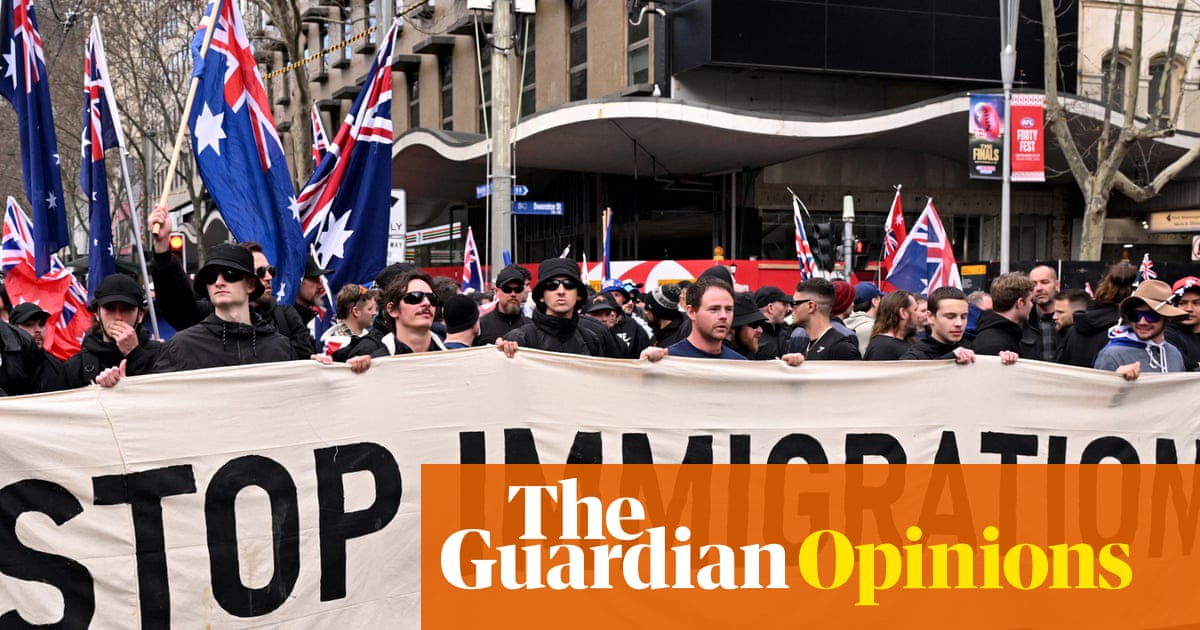When I moved to Australia more than five years ago, I experienced for the first time the pleasures and safety of being able to go on a night stroll by myself – something I had never done in my home country. Then, as I heard the stories of violence against women on the streets and homes across Australia (and the world), I realised that as a woman you don’t get to feel a sense of belonging in most places. I learned to accept that.
On Sunday, as I walked the street outside my humble, one-bedroom, overly priced Melbourne apartment in broad daylight, I felt unsafe again. This time not because of my gender but because of another part of my identity that I have no control over, nor did I ever think would be under scrutiny in this beautiful multicultural country: my race.
I am an immigrant who works nine to five in a field that strives to advance Australia’s national interest (foreign policy) and studies part-time on weekends. I pay full tuition fees upfront, taxes and a hefty health insurance fee to meet my visa requirements and yet avoid going to the doctor because insurance doesn’t make healthcare any more affordable.
I call Melbourne home now. I have cheered the loudest with my immigrant friends and family when the Tillies won, and chanted “Oi, oi, oi! Aussie, Aussie, Aussie!” with pride. I have become comfortable in referring to this country as “us” and “we” in my everyday conversations (and even throughout this article) despite the knowledge I have to regularly navigate an increasingly complex visa system, pay ridiculous visa fees and take the English test every couple of years so I can continue serving with my time, effort and skills. Over the five years I have learned to accept this country as my own.
I would be one of the eager ones to join a “March for Australia” rally should it have meant what the title suggests. But Sunday wasn’t about Australia or its culture or values. As I stood and watched the “Oi, oi, oi!” slogan shouted alongside racist remarks by people waving the flag, I never felt more foreign on this land.
The country I chose to migrate to was full of opportunities, openness and a hotchpotch of ethnicities, cultures and backgrounds. Melbourne, to me, was a place of diverse identities but even more diverse food culture. On Sunday it felt different – hostile, unwelcoming – and not the laid-back, kebab-fond, barbie-at-the-beach culture I admired.
Who is the average Australian? We are now more than 50 years post the abolishment of the white Australia policy. Our country’s demographic has changed and keeps changing. More than 50% of Australians are born overseas or have a parent who was born overseas.
When does hate speech turn to violence? Does the law protect us in those instances?
I am a minority. I have friends who look like me, migrated long before I could identify Australia on the map, or were born here. They hold Australian passports, pay the same taxes as the people in the rally and juggle multiple jobs to support their families. They are affected by the housing crisis and the cost-of-living crisis just the same. But this protest was not about that either.
We can say this was an anti-immigration protest but the truth is that on stolen land everyone but the First Australians are immigrants. So they don’t want to throw out the immigrants who came under the white Australia policy. Nor do they want to throw out the white English, Irish or American citizens. They also don’t care which country I am from or whether I was already born and raised here. They have a problem with something more than my citizenship: the colour of my skin.
The protesters shout racist remarks and then apparently hit the local yum cha restaurants for their favourite sweet and sour pork (sponsored by Australian multiculturalism). Do they approve of us only if we stay in the kitchen and cook their food? But who am I to question them as an immigrant woman of colour?
One of the biggest reasons to love Australia is that it is a functioning democracy. We have the right to choose our government. We have freedom of speech (protected by the UN charter) that allows us to keep the elected government in check. But when does free speech turn to hate speech? When does hate speech turn to violence? Does the law protect us in those instances?
The people from the rallies walk next to us on a regular day. We may be working with them, serving them, interacting with them. How do we feel safe knowing they hate our identities?
Democracy is not a destination but a work in progress. And the protests at the weekend show there is much more to be done.
Jafrin Kabir is a program manager at Asia Society Australia. She has an undergraduate degree in psychology and international relations, and is studying for a masters in global studies
